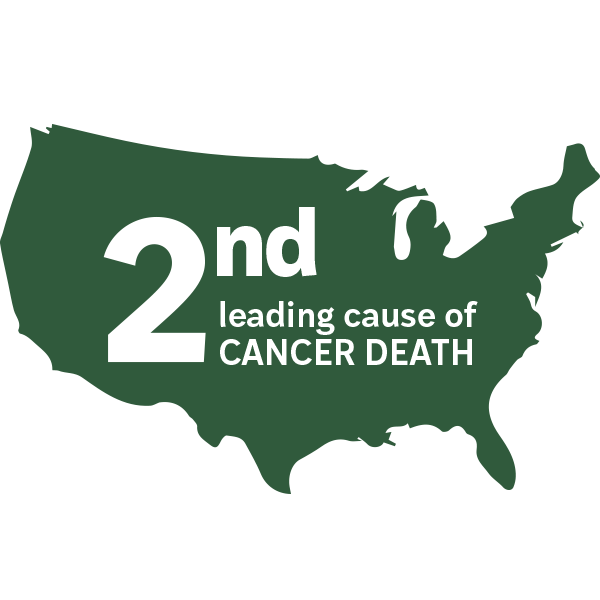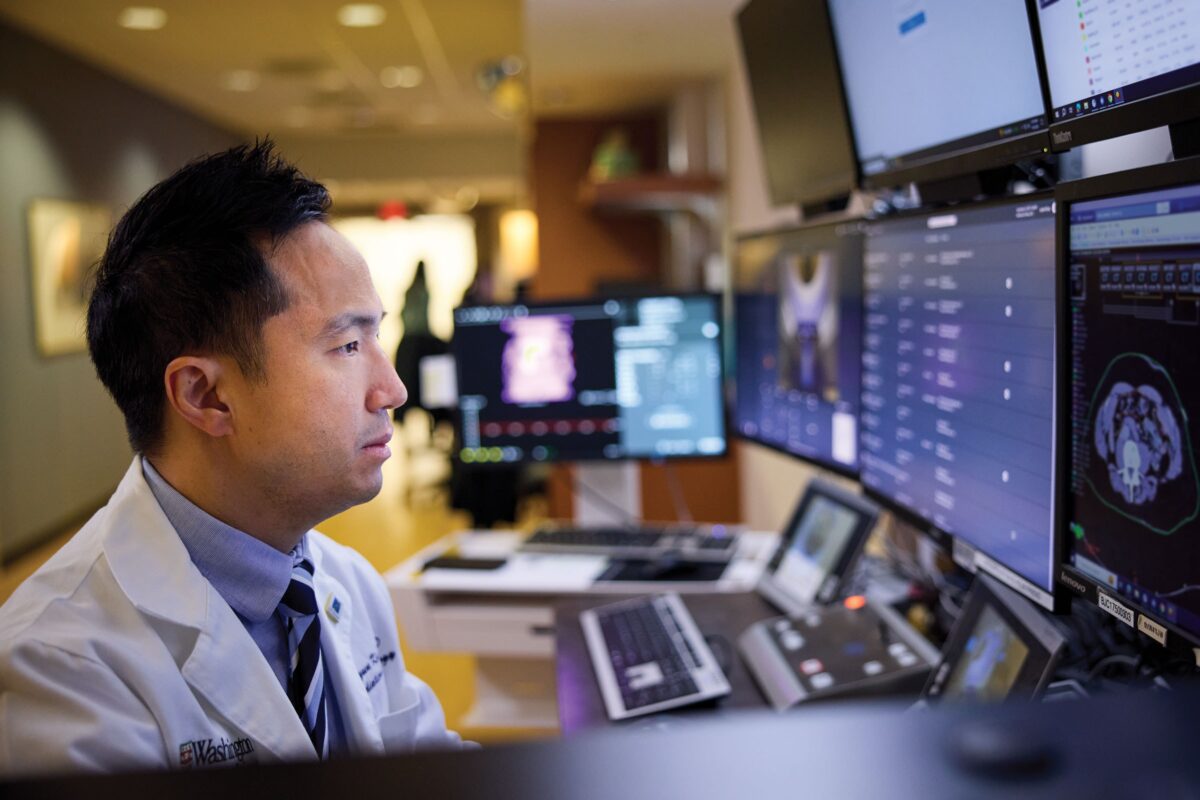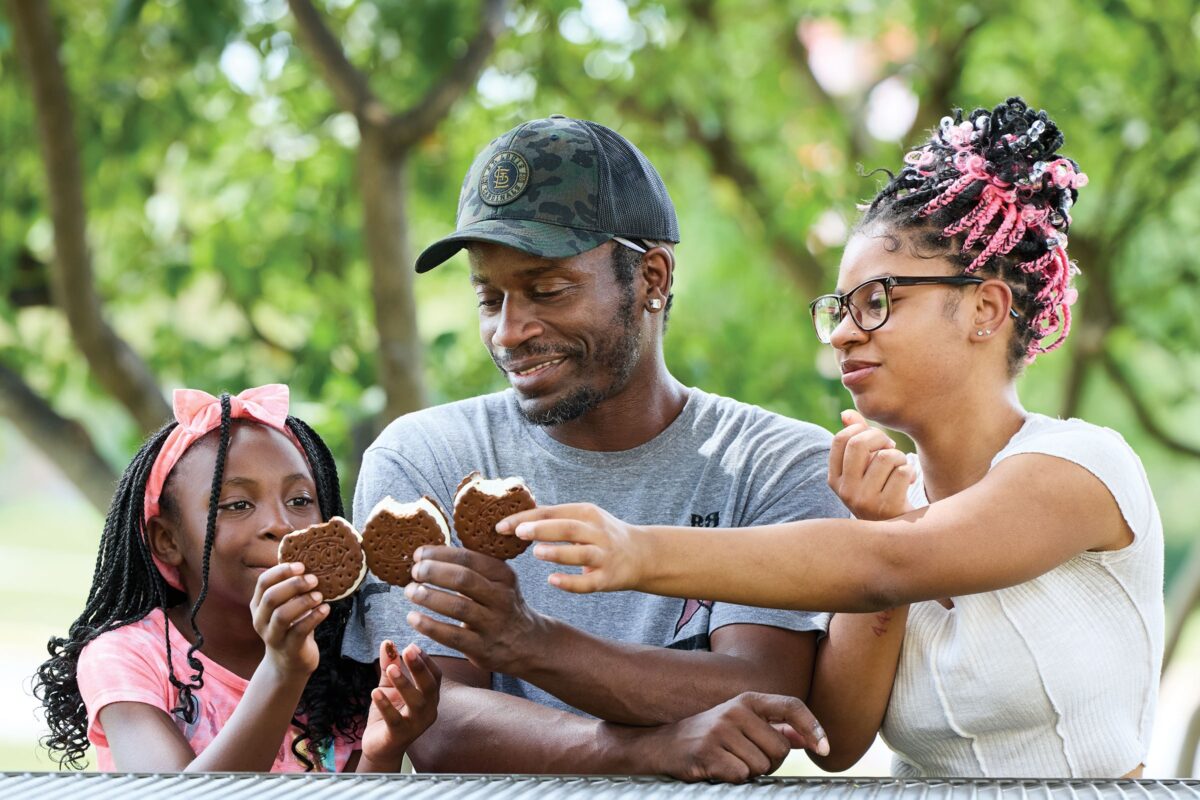
For more than a decade, Michael Rall-Brown would skip meals to avoid digestive havoc. Other times, he’d eat and, within the hour, stop whatever he was doing to sit or lie down until waves of pain passed. Diarrhea was a frequent occurrence.
Rall-Brown delayed seeking medical care because he lacked finances and time off work. And for as long as the 39-year-old father of two daughters could remember, his family had not trusted doctors, due to long-standing discrimination against Black people, including in health care.
But in April, agony forced Rall-Brown to seek help at two hospitals near his home in north St. Louis County. At the second hospital, doctors found multiple masses in his colon that were causing obstruction and dangerously low blood counts. Given the complexity of the situation, he was transferred to Barnes-Jewish Hospital. Additional imaging and diagnostics revealed hundreds of polyps in his large intestine, landing him in the operating room with William C. Chapman Jr., MD, a WashU Medicine colorectal surgeon at Siteman Cancer Center.
During surgery, Chapman discovered two golf-ball-sized tumors hiding among the hundreds of polyps riddling Rall-Brown’s large intestine, which includes the colon and rectum. The surgeon removed his entire large intestine and reconstructed a new stool pouch from Rall-Brown’s small intestine.
“On the spectrum of polyp numbers we see, Michael was at the absolute top,” Chapman said. “Over the years, polyps had carpeted his large intestine and continued to grow. Two of them had even turned into cancers, all without Michael knowing of his underlying disease or the threat looming within his bowels. Taking care of patients like him is extremely complicated, often requiring specialists from multiple disciplines. That’s the advantage of Siteman, with the expertise of WashU Medicine specialists. We can provide the very best care to patients with aggressive cancers. And that was true with Michael. By the time I saw him, he was in bad shape.”
Colorectal Cancer

90%
survival rate when cancer is found and treated early.
Common signs in people who develop early-onset colorectal cancer

Abdominal pain

Rectal bleeding

Diarrhea

Iron deficiency
Today, Rall-Brown said he feels much better and has resumed many of his regular activities, such as spending time with his daughters.
As part of his care at Siteman, Rall-Brown learned he has an inherited genetic mutation predisposing him to early-onset colorectal cancer. His maternal grandmother had died from colon cancer in her early 70s, but Rall-Brown saw her cancer as a disease that afflicts older people, not someone young like him.
“Having cancer hadn’t even entered my mind,” Rall-Brown said. “I just thought I had a weak stomach. I didn’t realize how close I was to dying.”
Many adults under 50 years old are like Rall-Brown, attributing digestive problems to having a delicate system, nerves and stress, eating poorly, or a run-of-the-mill stomach virus. They also may think blood in their stools means hemorrhoids. “Colon cancer is not usually what they think of,” Chapman said.
Rall-Brown is part of a consistently increasing number of adults under age 50 being diagnosed with colorectal cancer.

The American Cancer Society cautions that colorectal cancer has become the leading cause of death in men younger than 50 and the second-highest cause of death in women in the same age group.
Many young people delay medical care because they are unaware of the symptoms or risks, and they do not typically undergo screenings such as colonoscopies. By the time they’re diagnosed, the cancer is often in advanced stages.
Meanwhile, routine screenings and increased awareness in people over age 50 have helped to decrease deaths from colorectal cancer. If caught early enough, the cancer is highly treatable.
Recognizing the urgency to reach younger people, Siteman established the Young-Onset Colorectal Cancer Program in 2021, becoming one of the first cancer centers in the U.S. dedicated to diagnosing and treating colorectal patients younger than 50.
Each year, about 100 new patients from Missouri, Illinois and surrounding states are seen in a multidisciplinary clinic at Siteman that brings together WashU Medicine surgeons, medical oncologists and radiation oncologists who have expertise in treating younger patients with colorectal cancer. Along with the clinicians, the program offers diagnostics such as precision radiology and resources such as access to clinical trials, some of which have led to innovative treatments that have changed industry standards and practices.
“Cases continue to increase in adults at a younger age, and some of this can be explained by family history or inherited cancer syndromes, but the medical community doesn’t fully understand most of the reasons why cases are on the rise,” said Chapman, an assistant professor of surgery and one of the program’s lead physicians. “The program leans into WashU Medicine’s vast expertise in clinical care, research and technology to tackle this problem from all angles.”
Hyun Kim, MD, is a WashU Medicine associate professor of radiation oncology and head of the gastrointestinal oncology and adaptive radiation therapy services. He has led multiple studies in which patients with rectal cancer had healthier outcomes without surgery and with shorter than usual courses of radiation and chemotherapy. “Not having to undergo surgery is such an important treatment option for young patients,” Kim said. “These patients with young families and jobs can continue to live their lives during treatment.”
The program also has helped Rall-Brown by offering financial counseling and other services aimed at helping patients navigate medical bills and the health insurance system.

Further, he talked with a genetic counselor who recommended his family members get testing. He learned that Black people are 20% more likely to get colorectal cancer and 40% more likely to die from it than people of other races. “I don’t believe most people in my community are aware of this,” he said. “Just knowing the risks helps prevent people from getting colorectal cancer.”
The Young-Onset Colorectal Cancer Program also is dedicated to advancing research that improves prevention, early detection and treatment. For example, Yin Cao, ScD, a program leader and an associate professor of surgery and of medicine in the Public Health Sciences Division at WashU Medicine, is leading global efforts to identify risk factors for young-onset colorectal cancer.
Earlier this year, Cao was awarded a prestigious grant for $25 million from Cancer Grand Challenges, a global research initiative co-founded by the National Cancer Institute of the National Institutes of Health (NIH), and Cancer Research UK. It is dedicated to tackling the toughest challenges in cancer research. Cao is co-leading an interdisciplinary research team involving nine co-investigators across the globe, including Gary Patti, PhD, the Michael and Tana Powell Professor of Chemistry at WashU. Working with more than 70 collaborators and a panel of patient advocates, the team is committed to identifying risk factors, with the goal of swiftly reversing the rising trend of early-onset colorectal cancer.
“As colorectal cancer and many other cancers are coming to a younger population, we must expedite the discovery of causal risk factors for cancer, with the goal to identify effective and equitable interventions,” Cao said. “This requires a disruptive framework by uniting population science, mechanistic research, and implementation science in an accelerated fashion. We are pioneering this, building upon our years of dedicated work in early-onset colorectal cancer.”
With the support of Cancer Grand Challenges and Siteman, Cao’s team will continue to lead groundbreaking work in early-onset colorectal cancer. Among her team’s efforts, she is collaborating with WashU Medicine physicians at Siteman to gather clinical samples spanning the entire cancer continuum. Through precisely mapping the molecular changes triggered by risk factors, such efforts will unlock the potential to develop powerful, targeted interventions.
“Our overarching goal is to prevent and detect cancer earlier among younger generations,” Cao said. “This mission is bold and ambitious yet achievable. This drive comes from our unwavering commitment to patients like Mr. Rall-Brown, our community and our children.”
Rall-Brown said he found purpose during his illness: “It may sound odd, but having cancer has helped my self-esteem,” he said. “It shows I survived for a purpose. Maybe more people will get genetic testing. Maybe my daughters won’t get cancer. There’s a reason I’m here.”
Explore the extensive scope of cancer care and research.
Published in the Autumn 2024 issue


